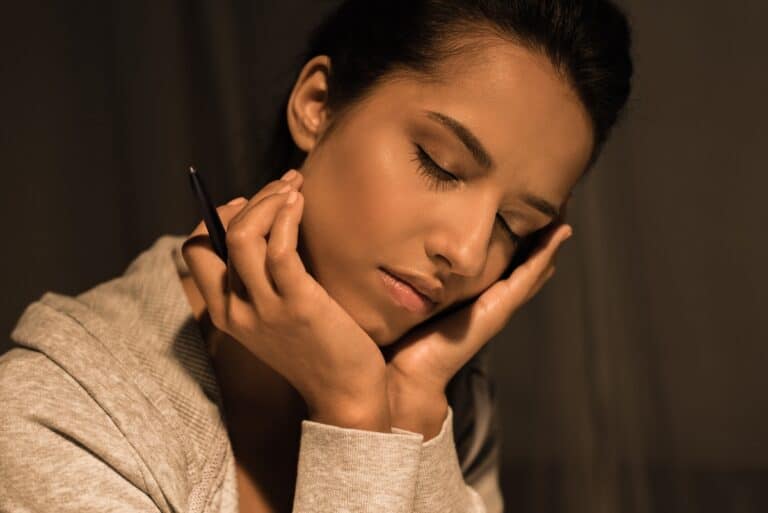The term “benzo eyes” is often used informally to describe the noticeable changes in a person’s eyes or gaze due to benzodiazepine use. These common place drugs can have a pronounced sedative effect on the central nervous system. As a result, people who misuse or are dependent on benzodiazepines may appear to have droopy eyelids, a glazed-over look, or an inability to focus their eyes. These visible signs can sometimes be subtle but are often one of the first red flags that something is wrong.
If you’re wondering whether “benzo eyes” are a sign of addiction or just side effects of prescribed use, the answer depends on the individual’s behavior and patterns of use. When benzodiazepines are taken exactly as prescribed, side effects like blurred vision or drowsiness are typically temporary. However, chronic misuse or high-dose dependency can lead to persistent visual changes and eye-related symptoms. These signs, especially when paired with other symptoms like slurred speech, coordination issues, or memory lapses, can indicate a deeper problem requiring professional treatment.
How Benzodiazepine Symptoms Develop
Benzodiazepines (benzos) work by enhancing the effect of a neurotransmitter called GABA (gamma-aminobutyric acid), which slows down brain activity and produces a calming effect. This is why they’re often prescribed for anxiety, panic disorders, muscle spasms, and insomnia. However, the same mechanism that makes them effective can also lead to sedation, dependence, and a range of physical and psychological side effects.
As benzos suppress central nervous system activity, they can cause several noticeable symptoms, particularly involving the eyes, coordination, and mental clarity. Many of these effects are tied to the brain’s reduced ability to stay alert and responsive.
Common Symptoms of Benzodiazepine Use or Misuse:
- Droopy or heavy eyelids (sometimes referred to as “benzo eyes”)
- Blurred or double vision
- Glassy, unfocused gaze
- Drowsiness or excessive sleepiness
- Slurred speech and slowed reaction time
- Impaired coordination or unsteady movements
- Memory problems and confusion
- Emotional numbness or detachment
- Light sensitivity or trouble adjusting to brightness
While these symptoms may appear during normal, short-term use, they often become more dangerous when benzodiazepines are misused or combined with other substances like alcohol or opioids. Over time, the body builds tolerance, requiring higher doses to achieve the same effects, which increases the risk of overdose and long-term neurological damage.
Recognizing the way benzodiazepines affect the body is an important first step in understanding the risks of dependence and the need for supervised detox.
Signs of Benzodiazepine Use
Recognizing the signs of benzodiazepine use—especially when it shifts from prescribed use to misuse—can help prevent long-term harm. While some symptoms may seem subtle at first, they often become more noticeable over time, especially when someone begins relying on the drug to manage daily life. Visual cues like benzo eyes are just one part of the picture.
Common Signs of Benzodiazepine Use or Misuse:
- Droopy, glassy, or unfocused eyes
- Slurred speech and slowed movements
- Drowsiness during the day or excessive sleeping
- Memory lapses or frequent confusion
- Mood swings, irritability, or emotional flatness
- Withdrawing from social activities or responsibilities
- Doctor shopping or taking more than prescribed
These signs may indicate developing tolerance or physical dependence. If left untreated, benzodiazepine use can quickly escalate into a dangerous cycle of addiction.
If You Are Looking Up Symptoms and Signs of Benzodiazepine Use
There’s a Reason You’re Searching
If you’re reading this, something has likely raised a red flag. Maybe you’ve noticed changes in your own behavior, or you’re worried about someone close to you. Either way, looking up benzo symptoms is often the first sign that something deeper might be going on.
Addiction Doesn’t Require Heavy Use
Benzodiazepine dependence doesn’t only happen to people taking high doses or misusing for years. Even low-dose misuse or taking the drug slightly more often than prescribed can cause the brain to adapt. This behavior often leads to dependence, tolerance, and withdrawal when the drug is stopped.
Small Missteps Can Lead to Dangerous Detox
Benzo withdrawal is unlike most other drugs. Trying to stop suddenly, even after short-term use or mild misuse, can cause intense symptoms like seizures, panic attacks, or extreme insomnia. Detoxing without medical help isn’t just tough—it can be dangerous.
This Is a Medical Condition—Not a Personal Failure
Benzo addiction is a physical and psychological condition that develops silently. People often don’t realize they’re dependent until they try to cut back, and find they can’t. Recognizing the signs and seeking medical help isn’t weakness. It’s the smartest and safest way forward.
Avoiding a Benzo Addiction
Avoiding benzodiazepine addiction starts with understanding just how quickly dependence can develop, even when the drugs are used as prescribed.
The best way to avoid addiction is through close medical supervision and short-term use only when absolutely necessary. If you’re prescribed benzodiazepines, stay in open communication with your doctor, ask questions, and monitor how the medication affects your mood, memory, and daily function. If you’re using benzos recreationally or without a prescription, even on occasion, you’re already at risk.
If you’re already noticing signs of dependence, early intervention is key. Reaching out before it escalates can help you avoid the serious physical and emotional toll of full-blown addiction or dangerous detox symptoms down the line.
Getting Help for Benzodiazepine Dependence
If you’re starting to feel like you can’t function without benzodiazepines, or you’ve tried to stop but can’t, you’re not alone. Getting help for benzo dependence starts with recognizing that real recovery often requires more than willpower.
The first step is usually talking to a doctor or mental health professional. They can assess the severity of your use and may recommend tapering the medication slowly, often while monitoring symptoms. For some, outpatient therapy can help uncover the root causes of benzo use and teach healthy coping skills.
However, when withdrawal symptoms are severe or previous attempts to quit have failed, a medically supervised detox is often the safest option. Detox helps clear the drug from your system while managing the risks, like seizures or extreme anxiety, that come with benzo withdrawal. In many cases, especially when long-term use or co-occurring mental health conditions are involved, a full residential rehab program may be the most effective path forward.
Need to Talk to Someone About This?
At New Leaf Detox in Laguna Niguel, we offer medically supervised benzodiazepine detox in a private, comfortable setting designed for safety and healing. Our experienced staff is available 24/7 to answer your questions, provide honest guidance, and help you understand your options.




